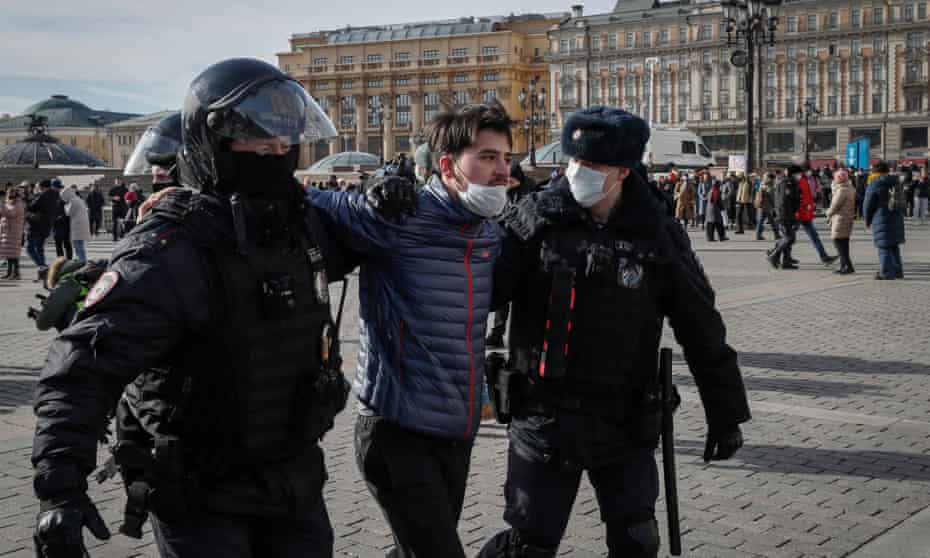Now we know: Russia’s horrific past could become our future under Putin
My generation never suffered Soviet-era repression, but now we face the dilemma of previous generations: to acquiesce or fight back
- Dmitry Glukhovsky is a Russian novelist and journalist

My generation didn’t experience the mass repressions and purges; didn’t experience the show trials in which the wrathful public demanded the executions of traitors to the Motherland; didn’t live in an atmosphere of universal horror; didn’t learn how to change our worldview from one day to the next, to believe in the insidiousness of yesterday’s allies and the good intentions of yesterday’s enemies at the drop of a hat, to justify fratricidal wars.
The Soviet Union that we experienced was already quite the herbivore: it no longer executed people for not believing in its core, binding lie, allowing them to question things quietly to themselves in the comfort of their kitchens; neither did it demand applause when the heads of those designated as “enemies of the people” rolled.
However, those who witnessed the past didn’t enjoy remembering what had come before, and now it becomes clear why. It is because survival in such circumstances required, above all, a compromise with oneself, with one’s conscience. Yes, it was necessary to turn away, yes, it was necessary to applaud, too, and for someone it was even necessary to execute others, with pleasure or otherwise, to avoid ending up on the chopping block themselves.
People don’t want to remember these things, and, to be specific, people also don’t want to confess to these things. Courage was required not only to object but even just to refrain, and courage is required in order to remember later what you, too, once – or even more than once – chose in order to divert the threat from yourself.
And now with us, with my generation, things are happening live on television which it seemed would never happen again. We are gaining a surprising experience: the opportunity to understand why our grandparents and great-grandparents remained silent and endured, how entire nations fell into the abyss of madness, how peoples turned a blind eye to tyrants who fomented world wars, how some people climbed up to the chopping block without a word, and how others agreed to cut off their heads.
Now we see with our own eyes how people are dehumanised before being destroyed: through mockery, through defamation, through the distortion of their words and motives, and the denial of their very capacity to feel and think as people. We know how predators hide: the wolf pulls the skin off the sheep he has just killed and wears it.
We are learning to cultivate an indifference in ourselves to the injustice that is clearly happening before our very eyes: it simply doesn’t affect us, and maybe it won’t at all, if we just don’t play with fire. After all, you cannot have enough empathy for everyone!
We are learning not to sympathise with the victim, but to sympathise with the aggressor instead. If you empathise with a predator, then it seems as if you are on his side, next to him, together. It is like staying close to a shark; it’s not as scary, and you can even nibble on the leftovers crumbling from its sharp-toothed jaws.
We are learning to turn a blind eye to the accelerating insanity of rulers and convince ourselves of their wisdom and vision. Like the batman in Jaroslav Hašek’s The Good Soldier Švejk, who was drip-fed his commander’s bullshit, we swallow their twisted conspiracy theories until we become so accustomed to the taste that we ask for seconds. After all, if you don’t believe them, who is there to believe? Is it not better to eat faeces than to go to bed thinking that your life is in the hands of madmen? Is there even such a thing as collective insanity?
Yes, we now know how to stay silent, turn the other way, duck and keep our thoughts to ourselves, but we are yet to learn how to define these thoughts. In order to not live in fear, to not feel like we’re cowards or slaves, we need to learn to sincerely believe what we thought to be false not so long ago.
It is about learning to march side by side, clapping on request, sincerely, desperately clapping when the enemies of the nation are executed and feeling goosebumps as we genuinely delight at the speeches of our leader. It is about celebrating wars. Welcoming bloodshed. Finding explanations and justifications, feeling elated by the betrayal of our brothers and the reprisals against them. Pretending that you do not notice, and maybe even genuinely no longer noticing, how your homeland is going down the path of fascist dictatorships, literally in their footsteps, towards the destination that we all know too well.
We did not want to know the past because we thought that we had left it behind. It seemed that these ghastly bizarre feelings would remain for ever sealed between the pages of text books. But the ghosts that have been feeding off grudges, exemption from punishment and entitlement are growing in size and pushing the pages apart, creeping out from the deceased past to the living now.
They demand blood and receive it. The blood of those who live in the here and now. Our blood that’s hot and red, rather than brown and dry.
We will have to learn to think together and march together, in fear of overly curious neighbours and cars in the middle of the night, drooling as we demonstratively kiss the icons and portraits of our leaders, devoutly believing whatever is being proclaimed as a commonplace truth by the Solovyovs and Tolstoys of this world, keeping a low profile in constant fear of not living at all: learning to do all this …
Or to learn to do the opposite: to preserve our memories and think of the future, to let go of grudges and not live in the past. To not believe the lies and to always demand the truth. To stick out like a sore thumb, to debate, to stand up for our dignity and to fight for it.
Until now, we have not understood anything from the experience of those who lived and died before us to make things different. And that is why we still have so much to learn.
Dmitry Glukhovsky is a Russian novelist and journalist. This article was first published by Novaya Gazeta in Russia

No comments:
Post a Comment